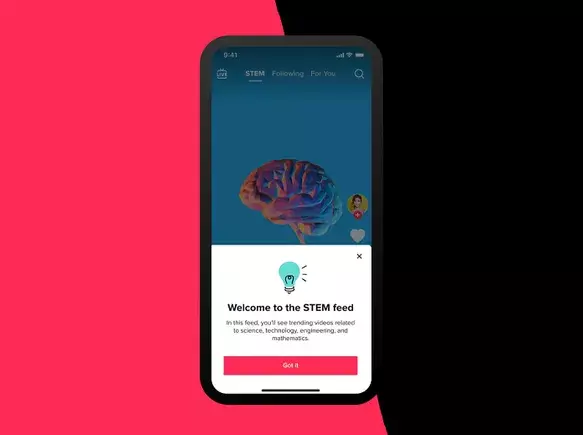TikTok, a platform primarily recognized for its entertainment and viral content, is taking a significant step towards redefining its role in education, particularly in the field of science, engineering, technology, and mathematics (STEM). Originally targeting a younger demographic — specifically users aged 18 and under in the U.S. — TikTok has expanded its STEM-themed feed to encompass all users in the U.S., U.K., and Ireland. Since its pilot launch, the initiative has demonstrated significant engagement, indicating a robust appetite for educational content among users.
The importance of this expansion cannot be understated. By opening its STEM feed to a wider audience, TikTok is not just increasing access, but also fostering a community where individuals of all ages can engage with scientific concepts and discussions. This shift is particularly crucial in an era where digital mediums increasingly shape how people learn and interact with information.
A Community-Driven Approach to Learning
According to TikTok, the STEM feed has become a platform where users can collaborate and share knowledge. The app’s ethos of community-driven learning has the potential to spark interest in STEM fields, encouraging users to explore career paths that they might not have previously considered. The platform’s interactive nature allows aspiring engineers to share their problem-solving methods, as well as it gives budding programmers a place to learn coding basics through engaging video content.
The statistics speak volumes about the initiative’s success: nearly 200 million views have been recorded for STEM-approved videos, with a substantial fraction of teens frequently engaging with this content. Such interaction suggests that TikTok is not merely facilitating passive consumption of information; it is actively promoting a culture of learning and critical thinking.
Addressing Criticism through Educational Initiatives
Despite the positive responses, TikTok’s educational endeavors come amid a backdrop of criticism regarding the platform’s addictive nature. Critics argue that the app can be a significant distraction for young users, prioritizing entertainment over education. By emphasizing educational content, especially in STEM, TikTok is strategically addressing these concerns and attempting to reshape its image from a mere entertainment hub to a valuable educational resource.
Moreover, TikTok is enhancing user experience by providing local language support for the STEM feed. This accessibility will likely encourage broader participation and inclusivity, further breaking down barriers to education. Localized content has the potential to resonate more deeply with diverse audiences, thereby enriching the overall discourse within the platform.
While TikTok’s expansion of its STEM feed is a commendable initiative, it is one of many steps needed to establish the platform as a credible source for educational content. The initiative aligns with a growing trend in social media, where platforms are increasingly recognized for their capability to provide value beyond entertainment. If TikTok continues to adapt and innovate in educational spaces, it may not only enhance its reputation but also contribute positively to society by encouraging the pursuit of knowledge and critical thinking among its users. As TikTok makes this content available, it is paving the way for transformative learning experiences within digital landscapes.


Leave a Reply